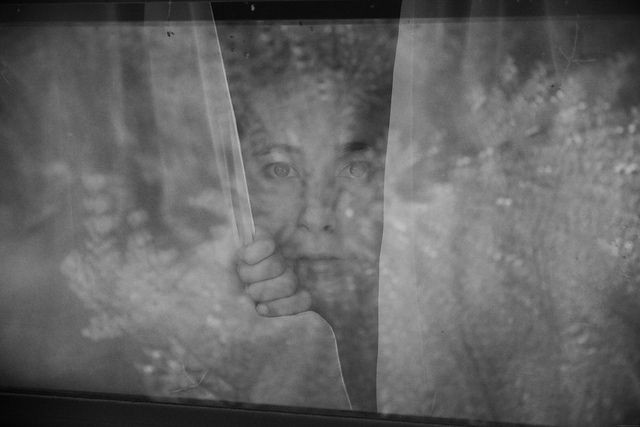Stigma Surrounding Mental Illness May Extend To Caregivers Who Find Themselves Alone And Needing Help

Who is the face behind the curtain staring into the rain? Currently, 8.4 million Americans are providing care to someone with a mental health issue, reports the National Alliance for Caregiving. Their new survey suggests many of these caregivers are struggling with finding the right support services, while finding themselves stigmatized and too often excluded from their loved one’s treatment plan.
Though an individual must suffer illness alone, entire families often share the burden of sickness together. A great deal has been written about the mentally ill, but little is known about their unpaid caregivers, most often relatives, and the challenges they face. To take a closer look at families dealing with moderate-to-serious mental illness, a research team designed an online questionnaire and surveyed 1,601 participants across the nation.
In Their Own Words
If a profiler were to draw the typical American mental health caregiver, the picture would contain an adult between the ages of 45 and 64 years old. They currently provide 32 hours of care each week and have been doing so for a total of 9 years. Just about half of them (45 percent) live with the person they care for, who is typically a relative between the ages of 18 and 39. Nearly half manage the life of an adult son or daughter, a parent (14 percent), or spouse (11 percent). In particular, parent caregivers say their health has become worse and as they grow older, they may be forced to rely on others.
“We feel lucky but financially stressed,” said one caregiver quoted in the report. “I lost my job in December and my husband’s insurance that we have now is really awful…. This is an expensive journey.”
Along with financial strain, the stigma surrounding mental illness extends to caregivers who find it difficult to talk to others and generally feel alone.
“If my son was sick in a physical way, friends and family would ask ‘how is he.'" one wrote. "People who knew about his illness never asked,” said another caregiver.
Most report emotional stress, a trait shared with all caregivers, and surprisingly, some of this anxiety stems from how they are viewed by the professionals on the case.
Ignored
“Those caring for an adult child are especially likely to say a healthcare provider or professional was unable to speak with them (77 percent), more so than those caring for a spouse/partner (37 percent), other relative (37 percent), or a non-relative (28 percent),” wrote the authors, who add that more than half of those surveyed reported feeling excluded from conversations about care.
“No one ever said for what illness she was taking [medication]. I had to guess that maybe she was bipolar,” noted one caregiver.
Speaking of her daughter, one mother commented, “To this date, we have not been able to determine if the diagnosis… is PTSD.”
About four out of every 10 caregivers say their loved one continues to search for an accurate diagnosis while the median time to reach an accurate diagnosis for the remainder of caregivers is 8 years. Following a proper diagnosis, medication becomes another problem, with about a third claiming their loved one’s regimen is effective in managing the condition.
“Right now my son finally has the right ‘cocktail.’ It took us almost four years and three suicide attempts before getting to this point,” said one caregiver.
Meanwhile, other relatives of patients with a mental disorder claim the prescribed drugs are either ineffective or difficult to take. Another frequently voiced request is for simple assistance. As reported in the survey, caregivers say they need help in understanding the illness, learning how to handle the patient, and especially in covering expenses not included in their benefit plans.
“I need help navigating [through] the mental health system, especially for a daughter who refuses services,” said one parent.
Overwhelmed, most caregivers also need time to look after themselves. For this reason, the authors of the research recommend, above all else, that healthcare screenings be provided not only for the patients but also their caregivers, with mental health questions integrated into these assessments. This would open an avenue for caregivers to get their own needs met.
Source: Weber-Raley L. On Pins & Needles: Caregivers of Adults with Mental Illness. National Alliance for Caregiving. 2016.



























